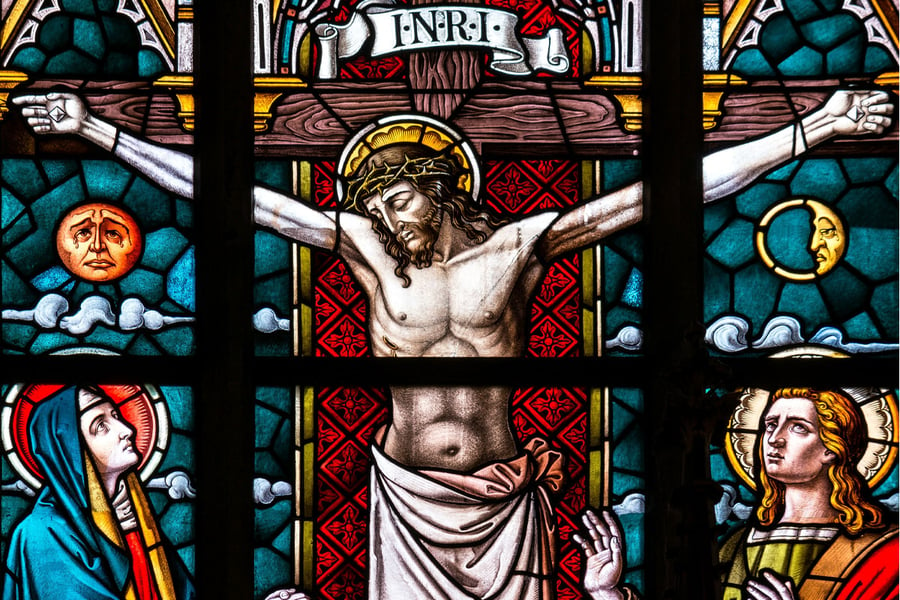It’s been described as a “license to discriminate“, and with submissions recently closing on the second exposure draft of the Government’s Religious Discrimination Bill, this weekend’s protests of the bill are as timely as ever.
For months now, many Australians have observed discussions about the proposed Religious Discrimination Bill from the Liberal Government. While the bill itself may have good intentions, a closer look has outlined just how damaging this potential piece of legislation can really be.
So, what is the Religious Discrimination Bill? On paper, it’s a document that intends to protect the rights of religious groups, but in reality, it could stand as a license for anyone to discriminate on the grounds of religious freedom.
Its origins lay with the Australian Marriage Law Postal Survey, which in November of 2017, saw Australians overwhelmingly vote “yes” to the question “Should the law be changed to allow same-sex couples to marry?”
In just a matter of weeks, the Australian Government launched an Expert Panel into Religious Freedom, and by 2018 the “Religious Freedom Review” report had been handed to the Prime Minister, claiming that there was an “opportunity to further protect, and better promote the right to freedom of religion under Australian law and in the public sphere.”
In 2019, the Attorney-General issued exposure drafts on three draft bills which intend to serve as a piece of legislation designed to protect religious freedom. Almost immediately, these drafts were condemned by both the wider public and the religious community, with the Sydney Anglican diocese warning of flaws too serious for them to support, while Freedom For Faith commented on “certain provisions which have consequences that are probably unintended.”
Though a second draft was released in December, with the Government welcoming submissions up until January 31, it was no more of a hit with human rights, equity, or even religious advocates.
Love Music?
Get your daily dose of everything happening in Australian/New Zealand music and globally.
“I have yet to see any wholehearted or enthusiastic support coming from either religious organisations, equality groups or the business community,” the ABC quoted Labor frontbencher Kristina Keneally as saying last December.
Under the proposed legislation religious grounds cans be cited as a defence for statements of belief, decisions of employment and schooling, refusal of medical aid, and much more.
Examples of such behaviour include doctors refusing contraception or hormone treatment due to their religious belief, religious-based institutions expecting employees of a different faith to uphold their value and beliefs, and allowing hurtful statements (such as claiming a person’s disability is a punishment from God) to be made without consequence.
Shocked to see this in my town. Yes, legal. But likely emboldened by Religious Discrimination Bill. Federal MPs must vote it down – or lives and safety will be at risk. This is reproductive healthcare and nobody should ever be denied it. pic.twitter.com/9TptaRUcTg
— Andy Meddick (@AndyMeddick2) January 29, 2020
“You could potentially have situations where people don’t want to work in teams with someone who is LGBTIQ+, or they might tell somebody with a disability that if you pray hard enough, your disability may be healed,” Diversity Council Australia CEO Lisa Annese explained to Pro Bono News recently.
“People may be judgemental against people who have used IVF, or are in same-sex relationships. It really is a risk that we’re running in order to address a problem that doesn’t actually exist.”
Understandably, this has divided opinions greatly, with Luke Beck, a Monash University associate professor of constitutional law, telling the Sydney Morning Herald that provisions of the revised bill “appear to be motivated by a desire to allow people to be nasty to others.”
Protests against the proposed legislation have been planned for some time, with seperate protests set to take place in Sydney, Melbourne, and Perth this weekend.
“[This bill] will allow people who discriminate against and vilify LGBTQIA+ people to get away with it on ‘grounds of religious belief’ so long as it is not ‘violent’,” Brisbane protest co-organiser Johnny Valkyrie explained to QNews last month.
“The law should treat everyone equally, and this bill allows discrimination.”
With submissions to the second draft of the bill closing last week, it currently remains unclear what new additions will be made to the proposed legislation. Likewise, it’s unknown whether the Government will decide to take into account the oppositions from the general public, human rights organisations, equity advocates, and religious groups, but we’ll likely find out soon enough when it’s finalised within the coming months.



































